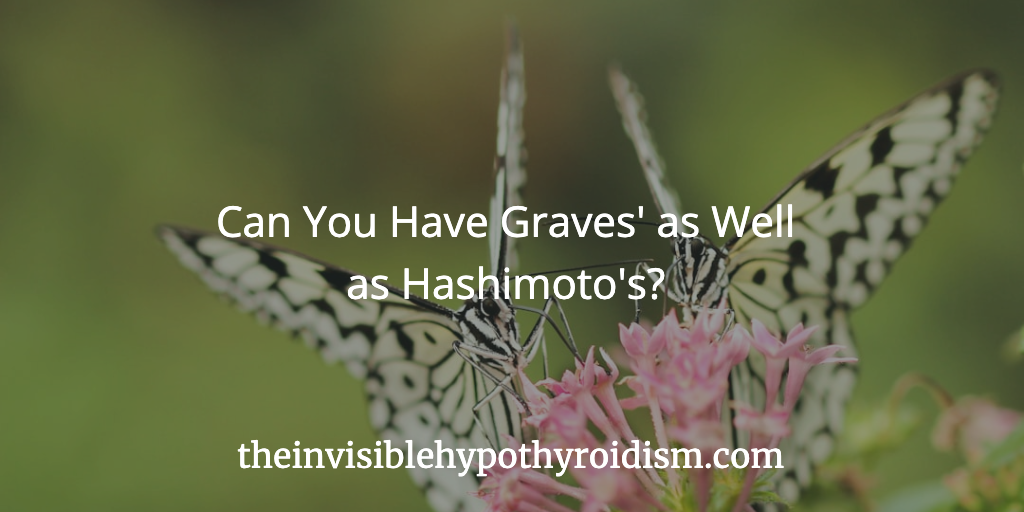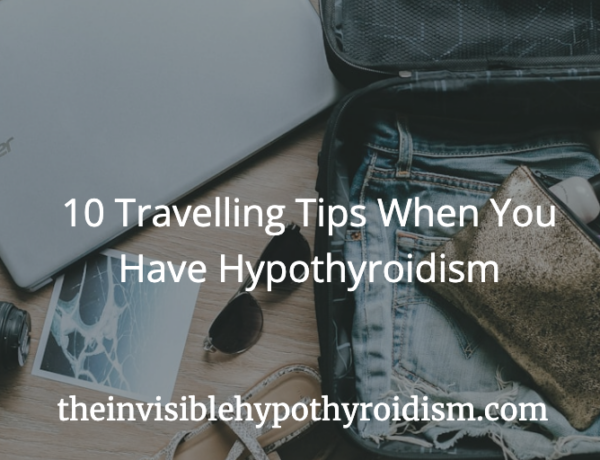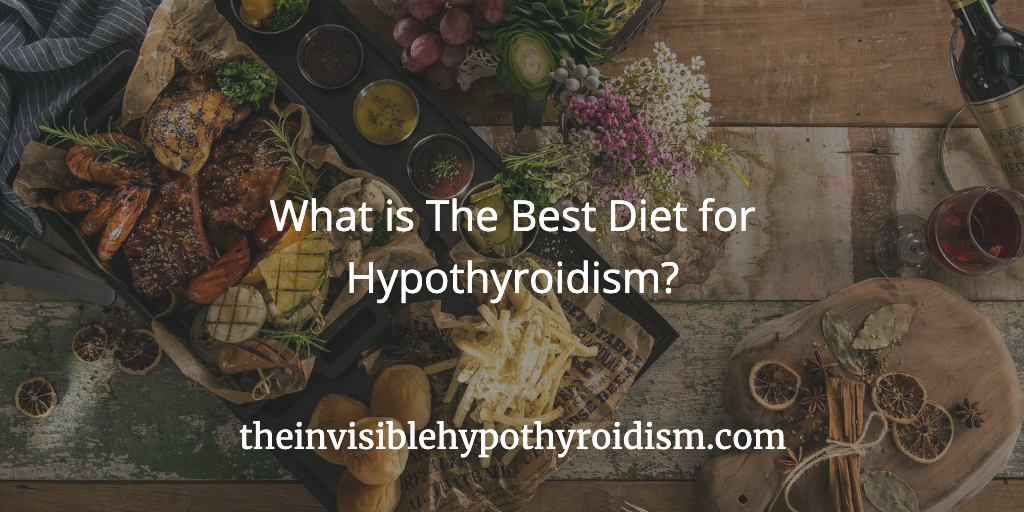Autoimmune thyroid disease occurs when the immune system mistakingly attacks the thyroid gland, marking it as an ‘invader’ for destruction.
The two most prominent forms of autoimmune thyroid disease are Hashimoto’s Thyroiditis and Graves’ Disease. Hashimoto’s is the leading cause of hypothyroidism (at 90% [1]) and Graves’ is the leading cause of hyperthyroidism.
If one typically leads to an underactive thyroid (hypothyroidism) and the other leads to an overactive thyroid gland (hyperthyroidism), can they exist at the same time?
The short answer is: it’s not possible to experience both at the same time, but you can be diagnosed with both.
The Difference in Graves’ and Hashimoto’s
Hashimoto’s Thyroiditis
Hashimoto’s causes the body to attack and destroy the thyroid gland, causing hypothyroidism as the thyroid begins to dysfunction from the damage caused. As time goes by, if this autoimmune disease is not well controlled, your body continues to attack and destroy the thyroid as if it is the enemy, which can cause your thyroid hormone levels to gradually get worse over time, meaning further increases in thyroid hormone replacement medication dosage and worsening symptoms of hypothyroidism (fatigue, cold intolerance, depression, dry skin, weight gain). Or an initial dose of thyroid medication if you’ve not yet been put on thyroid hormone replacement.
The two thyroid antibody tests Thyroid Peroxidase Antibodies (TPOAB) and Thyroglobulin Antibodies (TGAB) check for and diagnose Hashimoto’s. Thyroid peroxidase antibodies act against the enzyme thyroid peroxidase (produced by the thyroid gland) in the bloodstream. Thyroglobulin is a protein produced by the thyroid gland, needed for the synthesis of T4 to T3. Having Hashimoto’s will usually show as TPOAB and TGAB test results being above range.
Please note: If you’re not yet sure if you have Hashimoto’s as the cause for your hypothyroidism, you can test for it yourself here (a US testing company) and here (for those in the UK).
Graves’ Disease
Graves’ has the opposite effect. Caused by an overproduction of a different type of thyroid antibodies, TRAb (thyroptin receptor antibodies) and TSI (thyroid stimulating immunoglobulin), they mimic TSH, which stimulates the thyroid gland to produce more thyroid hormone. Symptoms such as anxiety, restlessness, heat intolerance and eye issues can ensue, as well as a diagnosis of hyperthyroidism.
Being Diagnosed With Both
Hashimoto’s and Graves’ Disease therefore have the complete opposite effect on the thyroid gland, so it is not possible to experience the effects of both at the same time.
However, you can still be diagnosed with both, and fluctuate between experiencing one or the other. Or, you may have an initial diagnosis of one (Graves’ or Hashimoto’s) and then switch to having the other permanently.
According to research, developing Hashimoto’s after Graves’ disease happens to approximately 15-20% of people with Graves’. [2]
The other way round, developing Graves’ after Hashimoto’s, is quite rare. [3]
What is Treatment Like?
Treatment for Graves’ (hyperthyroidism) and Hashimoto’s (hypothyroidism) is very different. The medications used to treat either high or low thyroid hormone levels are obviously very different. Treatment is therefore usually based upon which you are experiencing at that time. E.g. if you are hypothyroid, thyroid hormone replacement is given and if you’re hyperthyroid, antithyroid drugs are often given to block thyroid hormone.
Due to the nature of being diagnosed both Graves’ and Hashimoto’s at the same time meaning that you can fluctuate between the two states of thyroid disease, it’s not uncommon to have thyroid levels checked frequently to ensure that the correct treatment is still being given.
Did you know that you could be diagnosed with both thyroid conditions?
References:
[1] https://www.ncbi.nlm.nih.gov/pubmed/3066320
[2] https://www.ncbi.nlm.nih.gov/pubmed/20305330
[3] https://www.ncbi.nlm.nih.gov/pubmed/1982861





